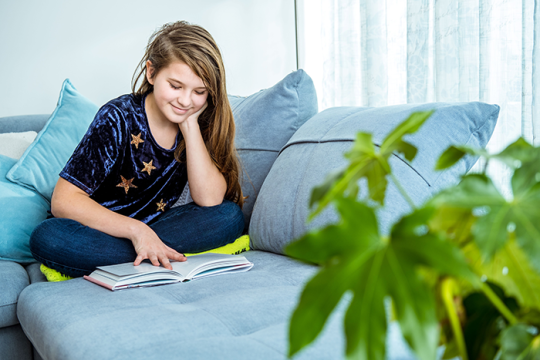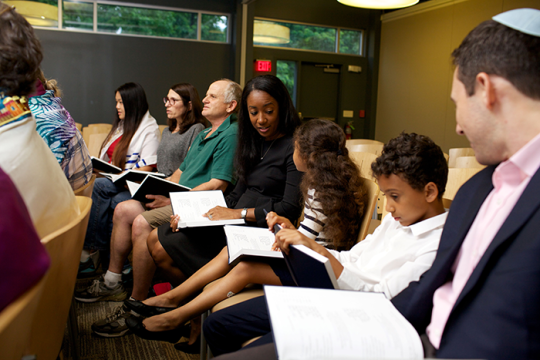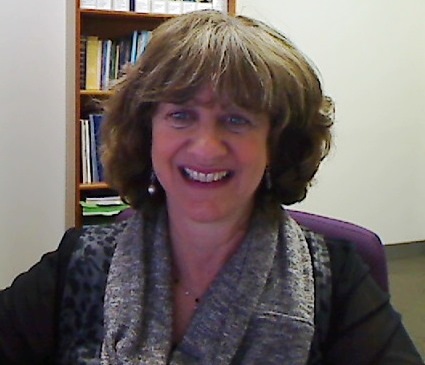
A saying often shared is "Little children, little problems; Big children, big problems." What a sad commentary! Let's reframe that.
For those of us who raised children, memories of lack of sleep (whether from midnight feedings or worry about them being out late), loving them while recognizing the need for boundaries, helping them achieve independence, and dealing with our own mixed feelings about having to adjust to their leaving home are realities many of us contend with over many years. At some point, though, when we look back, it may feel as though our children became grown-ups in an instant. The passage of time is its own mystery.
What isn't mysterious is the recognition that parenting those same little children once grown requires a new set of expectations, guidelines, and sensitivity. When each of my children, now in their 30s, went to college out of state, they were never far from my mind. I knew not to text or call too frequently and let them be, though I missed our day-to-day interactions.
When they came home during school breaks, my parenting boundaries were challenged. I realized that they were adults, but I still saw them as my dependent children.
I learned to readjust my expectations. I thought (hoped?) that they would still follow the same overall schedule they maintained when they lived at home.
"You're going where? You'll be back when? Why do you seem angry that I'm asking?" Obviously, I was off base. They were perfectly fine on their own, who was I to try to establish rules once they were home? Couldn't they use our house as a springboard to continue doing as they wished when they wished? I temporarily forgot that I was no longer supposed to worry about them. Sigh. I had to learn to evolve, just as the ways we express our Judaism have evolved over the years, and embrace a new awareness.
Not only do we watch our children evolve into their roles as adults; we, too, need to accept that we need to evolve into our own changed roles. Before holding our kids accountable, we need to hold ourselves accountable as we work toward thinking with more flexibility and holding on to occasional discomfort.
I learned how to establish guidelines. It helps to clarify boundaries in the ever-changing parent/adult child relationship to avoid miscommunication and disappointments.
I was accustomed to a very open relationship, mutually sharing information, feelings, curiosity, and stories without anticipating negative reactions. Once my kids became adults, I was sometimes surprised at my "children's" annoyance at my probing questions. It seemed like just yesterday they would have laughed with me about my nerve to broach any uncomfortable subject… and when younger, they would have answered my any question!
As a parent of adult children, I've learned to listen more than ask, to gauge what might be received as appropriate (or not), and to apologize when I slip. Just as we strive to create and nurture spaces of belonging in our broader communities, I realized that I needed to make my home a place where my adult children felt a sense of belonging. They needed home to be a place where they could be their full, adult selves - free from judgment or disapproval.
A family is a community in which both children and parents/guardians should be able to feel an ongoing, deep sense of belonging and acceptance. That could mistakenly lead to seeking meaningful connections by trying to learn more about the "inside scoop" in our children's day-to-day lives when they'd prefer to share selectively. They are allowed to set boundaries, as am I, without losing their sense of belonging in a network of familial love.
I learned to cultivate a new kind of sensitivity and acknowledge that we each might feel differently around delicate subjects. My adult children recognize that I choose to affiliate with Reform Jewish congregations (actually, two), observe Shabbat and other holidays with corresponding rituals and foods, work as a Jewish professional, and claim my Jewish identity as one of my primary descriptors.
Although my adult children both identify as Jewish, they may not join a congregation. They are selective about when and how they celebrate Jewish holidays. They respect my involvement but remind me that they may choose to be Jewish in their own ways. I recognize that they are adults who should select how they want to navigate their sense of self and their culture. Even bringing up this overall subject raises issues of sensitivity and vulnerability both on my part and theirs.
I know that discussion and debate can lead to wrestling with traditions, beliefs, and the difficult challenges of our times. After all, even wrestling with God is embedded in our tradition. I like to remind myself that it's also okay to wrestle with our identities, including parenting our adult children. The struggle, questioning, and engagement are part of being Jewish and essential to ongoing learning.
As we deal with many demanding questions of our time (or "age"), we need to remind ourselves that we're simultaneously dealing with the "age" of our "children" and our own aging. As our children grow, so do we.
"Little children, little problems; Big children, big problems"? Perhaps we shouldn't view little children or adult children in terms of problems at all. Rather, we should think "Little children, little joys; Big children, big joys" and enjoy the journey of evolving relationships, growing opportunities for a sense of familial belonging, and learning how to appreciate parenting at every incredible stage of life.
Related Posts

18 Jewish Reads for Tweens and Young Adults

Let Kids Read Books During High Holiday Services

